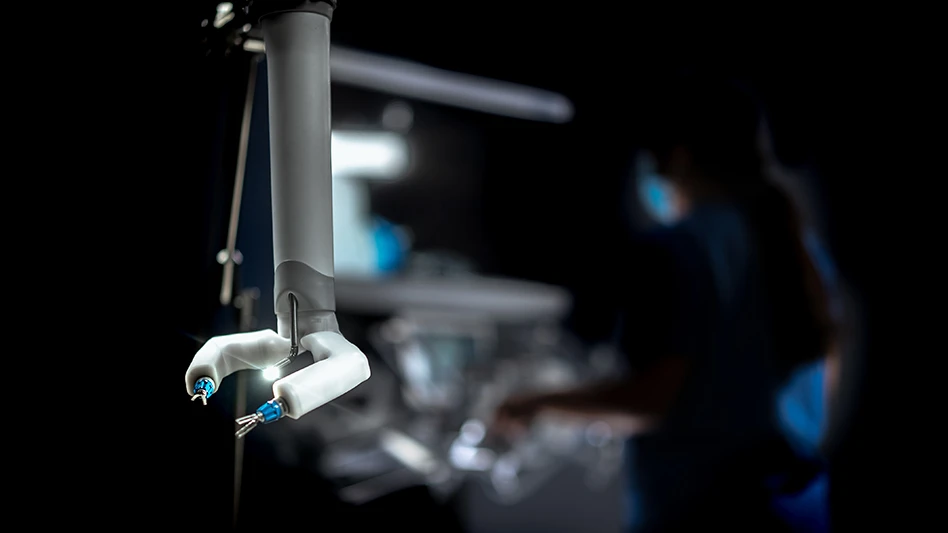
CREDIT: maxon
The spaceMIRA, developed by Virtual Incision and researchers at the University of Nebraska, is a compact, lightweight surgical robot sent to the International Space Station (ISS) on a SpaceX Falcon 9 rocket from Cape Canaveral in January. From Lincoln, Nebraska, 250 miles below the ISS orbit, six surgeons took turns performing remote testing of the unit by manipulating and cutting a rubber band type material that simulated actual tissue.
spaceMIRA, is a specially designed space-focused iteration of Virtual Incision’s MIRA, the world’s first miniaturized robotic-assisted surgery (miniRAS) system to be commercially available in the U.S. Similar to MIRA, its small and sleek design aims to offer the capabilities of robotic-assisted surgery (RAS) in a compact and convenient form factor that make it easier to transport and store the device. The modifications of spaceMIRA enabled pre-programmed and long-distance remote surgery capabilities for the experiment on the International Space Station (ISS).
Virtual Incision worked with maxon during the design of both the terrestrial version of MIRA and spaceMIRA. The robotic-assisted surgery (RAS) system incorporates the first-ever articulating camera. MIRA and spaceMIRA gain its strength in a small size by placing maxon’s motors inside the arms of the minibot. This structure allows the device to tackle a complex multi-quadrant procedure like colon resection across a broad range of patient types. The rigid, non-snake-like arms with internally mounted motors deliver the required strength to perform the surgeries while enabling triangulation of the camera and instruments.

motors, gearboxes, and accessories for a wide variety
of motion system applications, which enables a rapid
iterative process in the design of MIRA that would
meet demanding high speed and torque requirements.
The maxon components had to meet a number of demanding specifications due to the high speeds and torques required. Through their partnership with maxon, Virtual Incision was able to increase the efficiency of their system and maximize the deliverable output power for each joint. In addition to maxon’s complete line of motors and accessories, the company was able to create precision subassemblies specifically for MIRA. maxon’s team of engineers were helpful from conception and design to manufacturing of spaceMIRA’s subsystem. Virtual Incision developed all the accompanying hardware, firmware, and software in-house to optimize miniaturization and device performance characteristics.
RAS systems offer multiple benefits to patients, including fewer site infections, less pain, less blood loss, smaller scars, shorter hospital stays, and quicker recoveries. The test procedure on the ISS supports the feasibility of long-distance surgeries. MIRA is easy to clean and sterilize between uses and does not need to be draped like larger main frame, boom-and-pedestal based units. Ultimately, MIRA is the smallest soft tissue robotic assisted surgery system on the market. It offers significant strength for its size and high output force, and it’s designed to enable quick setup in any operating room, whether in a large hospital, outpatient facility, or small rural surgical center.
Latest from Today's Medical Developments
- Arcline to sell Medical Manufacturing Technologies to Perimeter Solutions
- Decline in German machine tool orders bottoming out
- Analysis, trends, and forecasts for the future of additive manufacturing
- BlueForge Alliance Webinar Series Part III: Integrate Nationally, Catalyze Locally
- Robot orders accelerate in Q3
- Pro Shrink TubeChiller makes shrink-fit tool holding safer, easier
- Revolutionizing biocompatibility: The role of amnion in next-generation medical devices
- #56 Lunch + Learn Podcast with Techman Robot + AMET Inc.





